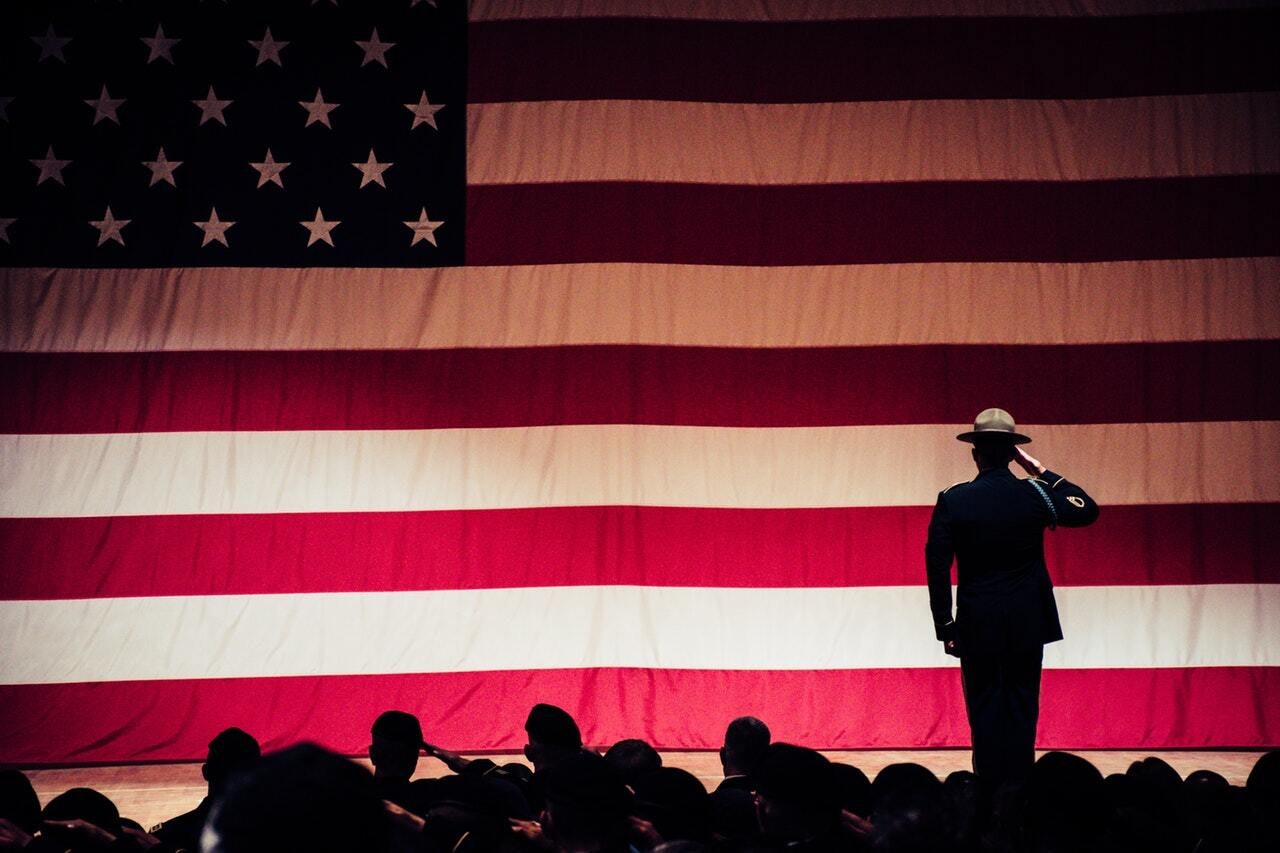On day one of boot camp, every recruit is taught the values of punctuality, personal grooming and working together, but some lessons gleaned from military experience aren’t as immediately obvious.
Ret. U.S. Army Maj. Gen. Luke Reiner, formerly the Wyoming Military Department’s adjutant general, joined the army in 1982 to experience something new, but stayed in as the service reforged his sense of duty.
“I thought it would be fun,” Reiner said. “The local (Army National Guard) unit was a combat engineer unit, and they would do cool things with explosives.”
He didn’t intend to become a career soldier, but the military became an integral part of his life.
“Initially, you stay because it’s cool, and you have a purpose,” he said. “But, in my mind, the purpose is what grows on you over the years. In the end, you stay because that becomes your calling in life.”
In March, Reiner hung up his uniform and accepted a new leadership role as director of the Wyoming Department of Transportation. The helmets changed to hardhats and the uniforms switched from green suits to orange vests, but he said most of his experience translated easily.
“My job as the adjutant general was very helpful in transitioning to WYDOT,” Reiner explained. “I oversee roughly the same number of people. But whereas in the guard, there were lots of part-time positions, at WYDOT, there are more full-time positions.”
Both entities break down into divisions or districts, each with their own needs and specialties.
Whether soldier or civilian, he said employees have the same needs.
“Personnel issues don’t change,” Reiner said. “You still have to ensure your men and women get paid, have good health care and a place to live.”
Reiner still rises early to for physical training, but he has plans to grow out his beard eventually and settle into civilian life.
“The military was a phenomenal job,” he said. “It was an opportunity to serve the state and nation and be part of the backbone of this nation. I feel like I have the opportunity to continue doing that here at WYDOT, and for that, I am thankful.”
Managing relationships
In Iraq, David Sheppard, a former U.S. Army staff sergeant, learned to balance the needs of a village with the demands of a nation at war.
“Our job was to remove the temporary bridges that were installed (on a primary traffic route) and build permanent roundabouts and culverts,” Sheppard explained. “Part of that mission was not only construction, but there was a small village right off the road we needed to maintain a positive relationship with.”
Many Iraqi citizens viewed the coalition forces as foreign meddlers with no understanding of local politics and customs. Relationships between the local populace and soldiers were often tense.
“In the military, you’re forced into a group, a unit, regardless of race, religion or economic factors — it’s a kind of melting pot — and expected to work together as a team,” Sheppard explained. “You become very effective at making it a productive situation despite your differences.”
After working with the Iraqi town’s leadership to ensure their needs were also represented in the project, Sheppard’s unit finished the roundabout and moved down the road without incident.
About a month later, a coalition forces patrol rolling through the town discovered and seized about 160 tons of explosive materials intended for use as improvised explosive devices that could have been used against Sheppard and his unit.
“I always circle back to how effective it was to take care of people and manage those relationships — it saved my life,” Sheppard said. “I try to translate that experience to my own everyday life in just being a productive human.”
Sheppard joined the guard in 1999 at 18 and served for about 12 years. Nowadays, he manages 911 Roofing Solutions Inc. in Cheyenne and uses the leadership skills he learned as a soldier to guide his management style.
“In the civilian world, you may encounter a handful of leadership styles over the course of a career,” Sheppard said. “But in the military, you’re exposed to so many different leaders at so many levels, that it really gives you a good perspective. It gives individuals the opportunity to take the good and throw away the bad in forming their own leadership style.”
Arena of beliefs
Christy and Andrew Stigen met while stationed at Eielson Air Force Base in Alaska.
Not long after they started dating, they encountered their first major hurdle as a couple — dual deployments to separate areas of operation.
“I think it was a lot easier for us to transition back than it was for others,” said Andrew Stigen, who exited the U.S. Air Force as a staff sergeant in 2011. “Both of us came back with the same experience. Other couples, where one stays behind and the other deploys, can have differing expectations when they are reunited, but we knew what we needed from each other.”
Serving together was not only the foundation of their marriage, but it allowed them to cultivate their world view as a couple.
While Andrew Stigen grew up in Casper, Christy Stigen was raised in a small Texas town.
“Being in the military exposed me to a lot of cultures,” said Christy Stigen, who left the U.S. Air Force as a staff sergeant in 2012. “I’m more open to new experiences now.”
Andrew Stigen said serving alongside people from every walk of life helped him understand viewpoints he might have disregarded otherwise.
“Everybody has a different mindset growing up in the world,” he explained. “Until people are thrown into an arena of beliefs, they really don’t know where they stand.”
After Andrew Stigen finished his enlistment, Christy Stigen was stationed at F.E. Warren Air Force Base and the couple moved to Cheyenne, where they decided to stay. After the military, both decided to use their experiences to help veterans. Andrew Stigen manages contracts for Veterans Affairs, and Christy Stigen processes claims for the Veterans Benefits Administration, a division of the VA.
They have a 3-year-old daughter and a son on the way.
“Joining the military was the best thing I ever did,” Andrew Stigen said. “I’m not going to encourage or discourage my kids from serving, but if they come to that decision on their own, I’m certainly going to paint in the best light.”
No matter the era or branch of service, Reiner said one thing binds all veterans together and drives them long after their time in the military is done.
“At some point, every veteran raised their right hand and swore to protect the Constitution,” he said. “That has no expiration date.”





